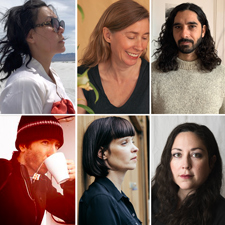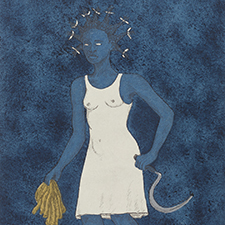Day 361, March 11, 2021
Got to Have Seoul
Tonight's soundtrack: The Ron Carter Quintet, 1990 and The Ron Carter Trio Jazzwoche Burghausen 2006 is phenomenal too!
I have been re-reading Ibram Kendi's How to Be an Antiracist, and I am struck with the realization that like, Kendi, in my earlier years, I had adopted the racist thinking that permeated American society in the 1970s and 1980s. I thought I was struggling against racism and racist stereotypes, but the reality is that I had internalized those stereotypes and expectations to the point that I believed that I might be able to craft an entirely new identity that was separate from my lived reality.
 |
| While traveling in Seoul I ran into one of the Blues Brothers. |
Racism in the 1970s and 80s for Asians had several different phenotypes. The first was that of the foreigner who was intruding in the spaces of real Americans. This sentiment was accompanied with the, "go back where you came from" statement in its mildest form, to the more visceral sense of Asians as the enemy where we became Chinks, gooks, Japs. In any case, it was clear that Asians did not belong.
The second phenotype was that of Asians' connotation with cheap junk. Made in Japan, Made in China, Made in Korea, were the stickers on cheap toys, junky cars, and unreliable electronics. This could also take the form of Asians as untrustworthy, inscrutable, cowards. At its most mild form, it was utilized as a joke about cheap products. At its most vicious it manifested in incidents like the killing of Vincent Chin, a Chinese man who was beaten to death by two autoworkers, who blamed him for the success of the Japanese auto industry.
The third phenotype was that of the shamefully inept Asian immigrant that appeared in countless films of the time period. In a mild form, one can see it with the Korean characters in the television show M.A.S.H. but the most archetypal figure was that of the character Long Duk Dong in Sixteen Candles. The utterly inept Asian man who lusts after white women, who find the Asian man so unsuitable that the joke is that the man is delusional. The character is emasculated as a comic gag. It was a cultural phenomenon to have one Asian eunuch buddy in many of the popular the movies.
Phenotype 3.5 is the somewhat related kung fu master. In the Boston area, on Channel 38, in addition to the beloved Bruce Lee films and the Kung Fu tv show reruns, there were the seemingly endless reels of overdubbed Chinese kung fu films and the early Japanese cartoons. While I watched these shows and movies with rapt attention, my white peers all saw them as additional fodder for difference. They would mouth extra syllables in a pantomime of over dubbed talk while teasing, and of course make the high pitched, "Hi-ya!" sounds of kung fu while kicking the air or making karate chops. It was humiliating to have the one cool and masculine depiction of Asians in popular American culture be coopted and again made to symbolize the foolish foreigner.
The last phenotype is that of the model minority, the Asian student as being preternaturally good at math and science. It is the biological racism that Asians are good at these things because that is how their minds work. It is the idea that all Asian kids should become doctors or engineers. It is the idea that the Asian student will behave, will submit to hard work unquestioningly, and will follow any authority figure. This was an adaptation of the fool in films, manifesting in full geek form. Before geeks were cool.
There are probably more, ones I didn't recognize at the time, or that evolved since then, but these were the images that hindered my imagination as a child and teen. Because I had allowed myself to be shaped by the society around me, I consumed the mantras of racism and an entire continent of people were amalgamated in my mind to have certain specific traits. I saw myself as part of that pan-Asian stereotype and the only way to fight against it was to try to exist outside of those expectations. I was not allowed to be whomever I wanted to be, I had to be the opposite of these models I saw on television and in the movies. I had to be able to respond to bus stop taunts with something that denied the validity of their taunts. I didn't define myself by who I wanted to be, or what I felt might be my preferences, instead, I defined myself in relation to what I was not. In so doing, I also defined myself as not Asian. Not Korean. Because, to be Asian or Korean would mean to fit into the American stereotype of Asians or Koreans. I ended up denying the existence of my own heritage in order to remake myself in what I had convinced myself was an entirely independent identity, but in reality was a full embrace of the assimilationist ideas of what cool and desirable were. Of course, what was cool and desirable were the mainstream White American visions of what was cool, what was desirable.
It took me a long time to come to terms with that denial. While I had engaged in a range of social justice causes in college including working with the local NAACP, creating a peace coalition, starting an underground magazine with an activist ethos, and convincing a faculty member to do an independent study on African American Literature with me, I had not turned the lens back upon myself. It is telling, that all of my creative writing from my college years do not have any Korean characters. None that are explicitly identified as such, and none that I imagined as Korean. I was writing about white people.
When I arrived in graduate school I was introduced to Jules Chametzky and took several classes with him. He was an incredible source of inspiration, and suddenly every character in every story I wrote was a person of color. This was accompanied by some truly miserable attempts to capture nuances of dialogue as I slipped into easy stereotypes. But it was a process of learning that I slowly became more adept at navigating. I came to understand I could write my characters as I saw them. My own experiences were valid because I am Korean too. My reality is also the reality and experience of Koreans in America. In addition to the stereotypes, there is an infinite diversity of possibilities, each one as Korean as the other.
It is startling that it took me twenty two or twenty three years to really start to understand that. And it has been just as many years since then and I still am learning how to fully embrace those identities with the identities I fabricated, and the identities I never nurtured.
Take care,
Leo
From Our Friends:
From the UMass Amherst FAC:

The World and The Word: Literature of the Ecological Crises
Friday, March 12 & Saturday, March 13 at 8 p.m. ET
The University of Massachusetts Fine Arts Center, in partnership with the Master of Fine Arts for Poets and Writers and the School of Earth & Sustainability, is hosting a semester-long series.
With support from the Chancellor's Sustainability Advisory Committee,
Transforming Crisis explores ecological crises, pressing environmental issues, potential solutions, and the power of the creative arts to inspire collective action through a range of performances, readings, and discussions
Our presentations of Miwa Matreyek: Infinitely Yours and JuPong Lin: Poetics of Repair-Being Earth, Being Water are also part of the Reimagine Residency Series, which invites nationally-recognized artists who are dedicated to addressing contemporary social issues through performance, education, and outreach activities.
From the UMass Office of Equity and Inclusion:
|
|






Comments
Post a Comment